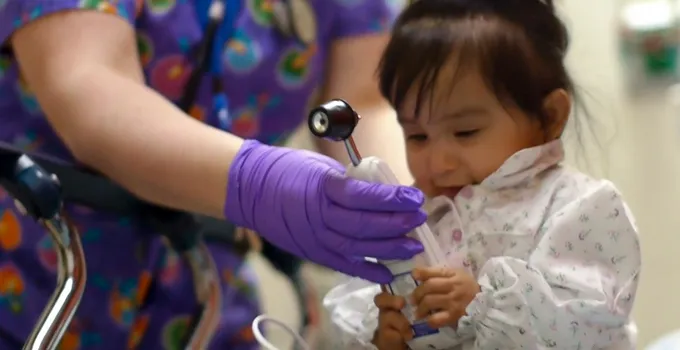Pediatric neurology plays a significant role in identifying and managing neurological conditions in children, aiding their growth and development. Specialists in this field focus on evaluating and treating nervous system disorders from early childhood through adolescence. Learning about pediatric neurology helps parents and caregivers work effectively with healthcare professionals to support their children’s development.
The Role of a Pediatric Neurologist
Pediatric neurology focuses on diagnosing and treating neurological conditions in children. Pediatric neurologists specialize in in-depth assessments to uncover the causes of developmental delays or neurological issues. These specialists guide and support families, helping them understand and manage their child’s unique needs. Pediatric neurologists collaborate closely with schools, therapists, and other healthcare professionals to develop effective care plans tailored to each child.
Common Pediatric Neurological Disorders
Pediatric neurological conditions can vary widely in severity and complexity. Some common disorders include:
- Epilepsy and Seizures- Recurrent seizures resulting from unusual electrical activity in the brain.
- Cerebral Palsy- A group of disorders affecting movement, balance, and posture due to brain injury or abnormal development.
- ADHD (Attention-Deficit/Hyperactivity Disorder)- Challenges with focus, behavior control, and impulsivity.
- Autism Spectrum Disorders- Developmental conditions affecting communication, behavior, and social interactions.
- Neuromuscular Disorders- Conditions like muscular dystrophy that cause muscle weakness and movement issues.
Early Signs and Symptoms in Child Development
Recognizing early signs of neurological disorders can lead to prompt intervention. Behaviors to watch include delayed milestones, difficulty with coordination, repetitive movements, or loss of previously acquired skills. Unusual patterns, such as persistent headaches or seizures, may also warrant an evaluation by a pediatric neurologist. Consistent monitoring helps children receive timely care when concerns arise.
Diagnostic Tools and Procedures
Pediatric neurologists use various diagnostic tools to assess a child’s nervous system. These may include:
- Electroencephalograms (EEG): To measure electrical activity in the brain and detect seizures.
- MRI and CT Scans: Imaging techniques that provide detailed brain and spinal cord visuals.
- Developmental Testing: Evaluates speech, motor skills, and cognitive development to identify potential delays.
Treatment Options and Therapies
Treating pediatric neurological conditions often involves a multidisciplinary approach tailored to each child’s needs. Common treatments include medications for seizures and ADHD, as well as therapeutic interventions like physical and speech therapy. As the child develops, ongoing care and treatment adjustments are pivotal.
Support for Families and Caregivers
Managing a child’s neurological condition can be overwhelming for families. Pediatric neurologists often provide educational resources and connect families with support groups or counseling services. These resources empower caregivers and strengthen the support system around the child, fostering a collaborative approach to care.
Advancements in Pediatric Neurology Research
Research in pediatric neurology is continuously advancing, bringing new diagnostic tools and therapeutic options. Genetic studies, innovative imaging techniques, and breakthroughs in understanding brain development offer promising opportunities for more effective treatments. These advancements improve the quality of life for children with neurological conditions and their families.
Supporting Your Child’s Development
Pediatric neurology plays a key role in helping children with neurological challenges thrive. Recognizing early signs, seeking timely assessments, and engaging with specialists allow families to provide their children with optimal care. For expert guidance, think about consulting with a pediatric neurologist to understand your child’s unique needs better and develop a plan tailored to their growth and success.
